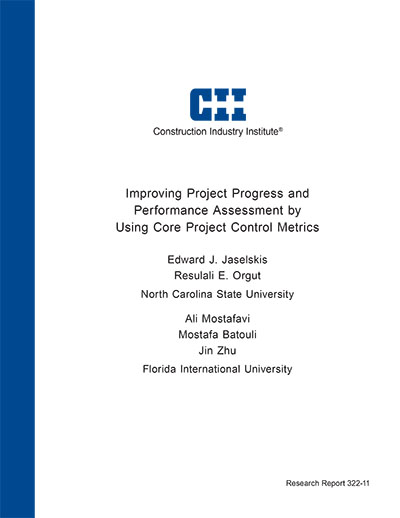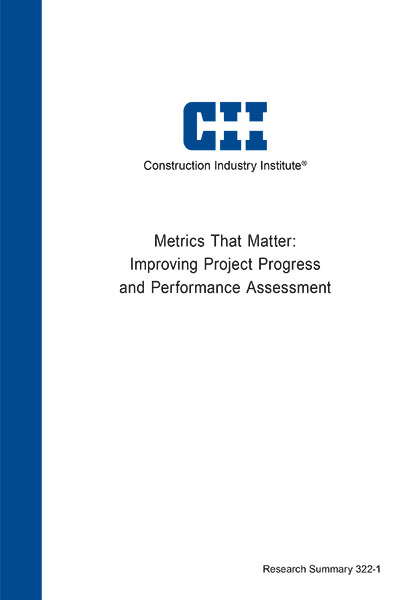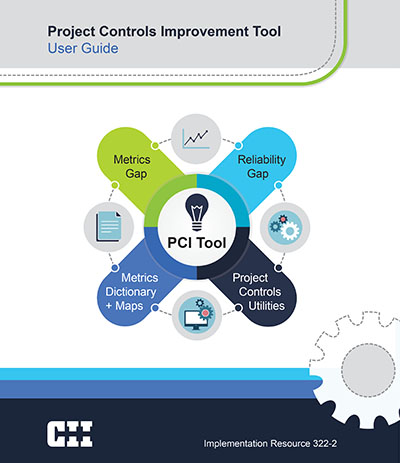
Improving Project Progress and Performance Assessment by Using Core Project Control Metrics
Due to increasing complexity and inefficiencies in project control system design and implementation, construction projects struggle to achieve initial cost and schedule performance goals. Assessment of project progress and performance is critically important to the successful delivery of capital facility projects. Often, project managers are misled in their perceptions of project performance until the project nears its end. Major challenges are related to the lack of consistent, reliable, and objective metrics and indicators, and the lack of appropriate interpretation of these data for establishing suitable corrective action plans. This research identified several key forecasting and diagnostic metrics that can help provide insights into a project’s actual progress, performance, and forecast at completion. It also provides information on ways to improve the reliability of these metrics.
The research methodology included a broad literature review of more than 120 sources to identify progress, performance assessment, and forecasting metrics. Other relevant cost- and schedule-related metrics (e.g., % of key deliverables completed on time, baseline execution index for critical path) that can help explain the current project progress and performance are also included. Additionally, factors for improving metric reliability in several areas such as project scope definition, execution planning, and risk management are included. Next, a survey was distributed to collect data on metrics and reliability techniques that were used on completed projects. In total, 44 surveys were completed, representing mostly large, industrial projects. Subsequently, 10 case studies provided more in-depth analysis of some of these projects. This was followed up by a Delphi session including 16 subject matter experts with more than 350 years of experience in total who evaluated and validated the findings from the survey and case studies. The Delphi session further refined a list of metrics that are considered Core (“must have”), Validation (metrics that confirm the validity of the Core metrics), Innovative (metrics that are not currently in wide use, but are considered potentially beneficial), and Other Significant (other metrics that fall outside the previous categories, but are perceived to have value).
Core metrics were initially selected based on the following project characteristics: large, industrial, reimbursable cost, balanced cost and schedule goals, moderate complexity, and contractor perspective. However, when considering Core metrics for other project characteristics, it was discovered that the core metrics will be the same—the only differences relate to the frequency of data collection and level of effort involved in collecting and analyzing these data. Further statistical analysis of survey responses revealed, that compared to projects using fewer Core metrics, projects that used more Core metrics for project controls experienced higher rates of success at meeting their original budgets. A correlation between the use of more Core metrics and better project cost outcomes was observed at the 95% confidence level using the Spearman’s rank correlation method.
The RT-322 research identified several in-flight project control metrics for forecasting and diagnostics of project progress and assessment and produced (1) a metric typology; (2) a classification of metrics; (3) the use and interpretation of core metrics; (4) the impact of project characteristics on core metrics; (5) validation of core metrics; and (6) critical reliability factors for project controls. From these findings, the Project Controls Improvement (PCI) Tool was created to provide a more standardized or systematic way of assessing a project’s progression and performance. Using the PCI Tool, project stakeholders can identify the gaps in their project control systems or learn more about Core metrics and steps they can take to improve metric reliability within a dynamic and interactive software environment.



